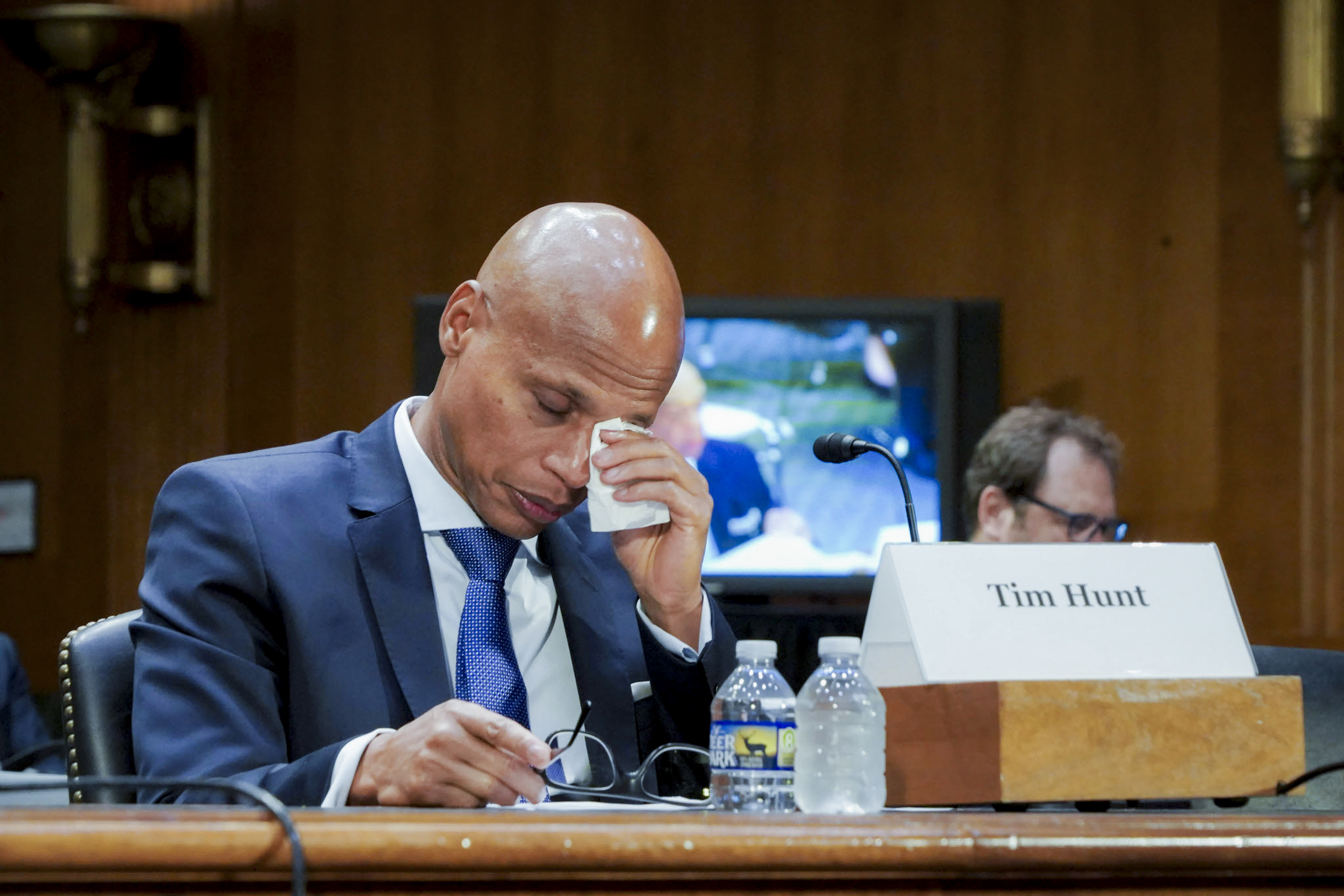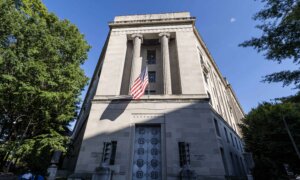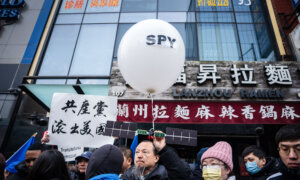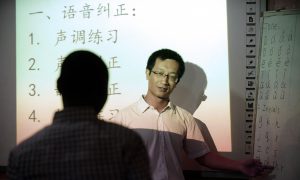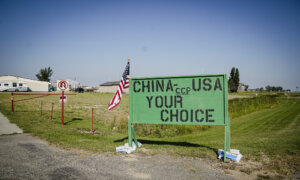WASHINGTON—Lawmakers and families of detained Americans in China are calling for the United States to raise its travel warning for the country to the highest level over fears of arbitrary arrests on Chinese soil.
“Nobody is safe in China—nobody,” Peter Humphrey, a former British journalist and fraud investigator who was locked up in China for nearly two years on charges of illegally gathering the personal information of Chinese nationals, told a Sept. 18 congressional hearing.
The hearing featured four Americans whose family members spent eight years or more in jail in communist China, a longstanding issue that has now garnered new attention with the release of David Lin, a China-born, naturalized American pastor who was kept in jail by the Chinese Communist Party for 18 years.
The State Department currently advises Americans to reconsider traveling to China, the level three warning, citing “arbitrary enforcement of local laws” that has resulted in individuals being barred from leaving China and people being detained on wrongful charges.
The hearing witnesses, as well as hearing chair Rep. Chris Smith (R-N.J.), chairman of the Congressional-Executive Commission on China (CECC), said that dialing up the State Department’s travel warning one level higher, to “do not travel,” is necessary to avoid their stories repeating.
Beijing has held more Americans as prisoners than any other nation in the world, according to the CECC, which Congress created in 2000 to monitor human rights abuses in the communist country. More than 200 Americans in China are under detention, exit bans, or other forms of coercive measures, according to estimates provided by Humphrey, who has researched the issue since his release, as well as human rights group the Dui Hua Foundation.
“I don’t think any of them deserve to be there. It doesn’t matter what they’re accused of—it doesn’t even matter whether they are guilty or not when they have never had a fair and transparent trial in an independent court with an impartial judge,” Humphrey said.
Sen. Jeff Merkley (D-Ore.) said he considers addressing the detention of Americans an essential part of the U.S.–China dialogue.

Sen. Jeff Merkley (D-Ore.), co-chair of the Congressional-Executive Commission on China, speaks at a congressional hearing on Americans detained in China, in Washington on Sept. 18, 2024. (Chen Lei/The Epoch Times)
“When China is interested in improving the relationship because of many interests they have related to the United States, including the selling of their products here in our open market, it gives us leverage to say other practices have to change, and those who are detained have to be released,” he told The Epoch Times. “In any other dimension of our relationship with China, this has to be a central part of the conversation.”
Rep. Zach Nunn (R-Iowa) described the issue as a tactic, saying that Beijing has “[built] a warehouse of potential detainees that they can use to raffle off at a future event, to extract concessions from the United States.”

Rep. Zachary Nunn (R-Iowa) speaks with reporters after a hearing about the Chinese Communist Party's (CCP) forced organ harvesting before the Congressional-Executive Commission on China in Washington on March 20, 2024. (Madalina Vasiliu/The Epoch Times)
In view of that, he said, raising the travel warning is a first step, “but it is only part of a larger chess match that China is trying to leverage against the United States,” he told The Epoch Times. “China has taken more Americans as prisoners, as potentially political hostages, than any other country in the world, and it has a ripple effect on every family, everyone who has an association with them, every entity back here in the United States.”
Smith said he plans to introduce a bill to provide people who have loved ones detained in China with more resources to assist their cause, and devise strategies for securing the family members’ freedom.
“This is American human rights being violated with impunity,” he said.

Rep. Chris Smith (R-N.J.), chair of the Congressional-Executive Commission on China, speaks at a congressional hearing on Americans detained in China, in Washington, on Sept. 18, 2024. (Chen Lei/The Epoch Times)
Heavy Toll
Harrison Li’s father, Kai Li, is a businessman still serving a 10-year sentence in Shanghai on espionage charges that U.N. human rights experts have deemed arbitrary. At the hearing, Harrison Li said his father had suffered a stroke and lost a tooth in prison.“Every day I wake up, I shudder at the thought of him crammed in that tiny cell with anywhere from seven to 11 other people,” he said.

Harrison Li, son of detained American citizen Kai Li, speaks at a congressional hearing on Americans detained in China, in Washington on Sept. 18, 2024. (Chen Lei/The Epoch Times)
Nelson Wells Jr. was arrested at an airport in 2014 at the end of a China trip after Chinese authorities allegedly found drugs in a bag he believed to contain baked goods, his father, Nelson Wells Sr., told the hearing. Almost 10 years later, the younger Wells remains in detention, suffering from debilitating chronic pain, seizures, malnutrition, and severe depression, with thoughts of self-harm, his father said.
Detained the same year, Dawn Michelle Hunt has been jailed behind bars on similar charges. Her brother, Tim Hunt, choked up as he pleaded with the commission to “bring her home.”

Dawn Michelle Hunt, an American detained in China on drug-related charges that she denied, in an undated photo. (Courtesy of Tim Hunt)
Dawn Hunt was tricked into believing she had won a cash prize, which led her to Hong Kong and mainland China, where she received a designer bag with illicit drugs sewn into the lining, her brother said. She is now facing the death penalty in the southern Chinese province of Guangdong.
She was forced to make lithium batteries early in her imprisonment, the family had learned. But by the time Tim Hunt saw her face to face in June—their first meeting in 10 years—her condition had worsened so much that she couldn’t lift anything heavy for fear of uterine bleeding, he said, noting that she wasn’t able to reveal much to the family under the guards’ watch.
The prison years have left visible marks on his sister, Tim Hunt said.
“She looks totally different. Even on her prison identification with her photo on there, I didn’t recognize the person I was sitting across from,” he told The Epoch Times, noting her gray hair, pale complexion, bulging eyes, and thin frame. “I thought she was wearing someone else’s photo.”
Their father, nearly 91, has been diagnosed with prostate cancer, and the family wonders if they'll be able to reunite before it’s too late.
“I’m doing this so that can happen, so they can be united together,” he said.
